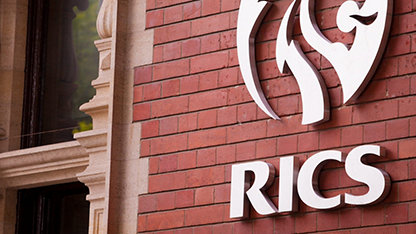As we celebrate Black History Month, JLL surveyor Faith Locken and Alexander Smith from Deloitte talk about their journey into the profession, and what more can be done to make this an engaging career path that is attractive to a more diverse talent pool.
What attracted you to surveying as a career path?
For as long as I can remember I've wanted to work in property, specifically property development. As a teenager I consumed an unhealthy amount of property related television shows and later at university (whilst doing a language degree) I would attend property auctions for fun. It wasn't until a friend of mine told me that if I loved property so much I should go into it, that I began considering property as a career. I Googled "careers in property", which ultimately led me to commercial surveying.
What has your journey into the profession been like?
I've had an interesting journey into the profession, mainly due to the fact that I studied languages at university, and I didn't know about the RICS or that I could even pursue a career in property until I was in my second year of my undergraduate degree. At the time (7 years ago), there were only a handful of companies that offered non-cognate graduate scheme placements. I knew that, after studying a 4-year course, I wanted to get straight into work, so the non-cognate graduate schemes really appealed to me as they meant I could work full-time whilst studying part-time. It was not easy by any means, and it involved a lot of late nights and weekends in the office, but I'm pleased to say I got through it and was successful in completing my masters in Real Estate Finance and Investment and becoming a chartered Commercial Surveyor last year.
What can be done to continue to improve the ethnic diversity of the surveying profession?
This is not an easy question to answer as I believe there are many tiers at which this should be tackled. I will do my best to distil this into 3 points that the RICS and property firms should focus on.
1) Begin educating property and the surveying profession as a viable career path to BAME school students (and their parents) from an early age. This can be done by going into schools to do one off speaking events, attending school career events, liaising with school career departments, or even challenging the government to incorporate real estate studies into the curriculum. The parents of these students are important stakeholders as well because they often encourage their children to pursue 'traditional' career paths that are deemed to be more successful (e.g. medicine, accounting, and finance).
2) Hire employees from diverse backgrounds. Get them while they're young - go to schools and colleges in different areas where there are a diverse mix of students and get them considering property as a future career. Hire more apprentices (and pay them well) and hire more non-cognate candidates from universities that do not necessarily offer real estate degrees. Partner with BAME recruitment agencies and organisations where you can tap into an existing pool of diverse talent at all levels of seniority.
3) Encourage and support your BAME employees in progressing within the profession. Too often BAME talent leaves a business because they hit the proverbial 'glass ceiling' with regards to career progression opportunities and are overlooked for promotions in favour of their non-BAME counterparts. I firmly believe we will not see an improvement in the number of BAME talent at senior, board or C-Suite level, until the industry begins addressing the unconscious bias that is so deeply prevalent at middle management.
What attracted you to surveying as a career path?
I first became interested in buildings when I visited my family in New York around the age of 8 or 9. It happened to be for Christmas, and if you have ever been in the United States over the holiday period they decorate their houses very extravagantly - with the local community judging & awarding prizes for the Top 3. On the same trip I also visited the Empire State Building, and took in the picturesque view of the New York skyline. I found that, upon my return to England, whenever I had the chance to draw something it was generally a building or graffiti. Initially I wanted to become an architect and I even took Art as a GCSE subject. However, after further research, I discovered that building surveyors also get involved in the design process and aren't sat at a desk all day; surveying presented a more straightforward route to becoming a chartered professional, so I decided I wanted to be a surveyor.
What has your journey into the profession been like?
Due to having a clear idea from my teens that I wanted to become a surveyor, I have had a pretty direct journey into the profession. After 6th Form I went to Nottingham Trent University to study Building Surveying, and opted for the sandwich course. The hardest part of the journey was trying to secure a job in my placement year - in the midst of a recession. I applied to the few jobs available but was unsuccessful on a number of occasions. Generally when I requested feedback it was constructive, however one organisation informed me that they didn't think I would 'fit' into the team, and another suggested that I didn't have enough 'potential'. I achieved straight 'A's at A-level, had achieved a 1st class average, whilst football coaching and teaching the piano part time at university - so that feedback seemed a little off kilter. However, Mike Richardson who worked at Davis Langdon (now AECOM) gave me a placement year opportunity and my career has been quite straight forward ever since.
What can be done to continue to improve the ethnic diversity of the surveying profession?
I think part of the reason for the lack of diversity in surveying is that it's not a well-known career. There are some universal barriers to entry - such as simply having an ethnic minority name reducing your chances of getting an job interview - but that's not just specific to surveying. Increasing awareness of the various surveying careers to teenagers will increase the number of surveying students from all ethnic backgrounds and social statuses. Having RICS representatives at year 11-12 career fairs such as the ones held by UCAS would be beneficial, and put the profession further into the spotlight. Unconscious bias training for senior management within the profession would also be beneficial, as they ultimately control recruitment and career progression. As a board member of the DiverseCity Surveyors Network, one of our aims is to not only connect people from various cultural backgrounds, but to also provide professional development opportunities for our members through training and mentoring schemes.



:1-1?$dpp-browseImage-OneToOne-xxl$&qlt=85,1)












